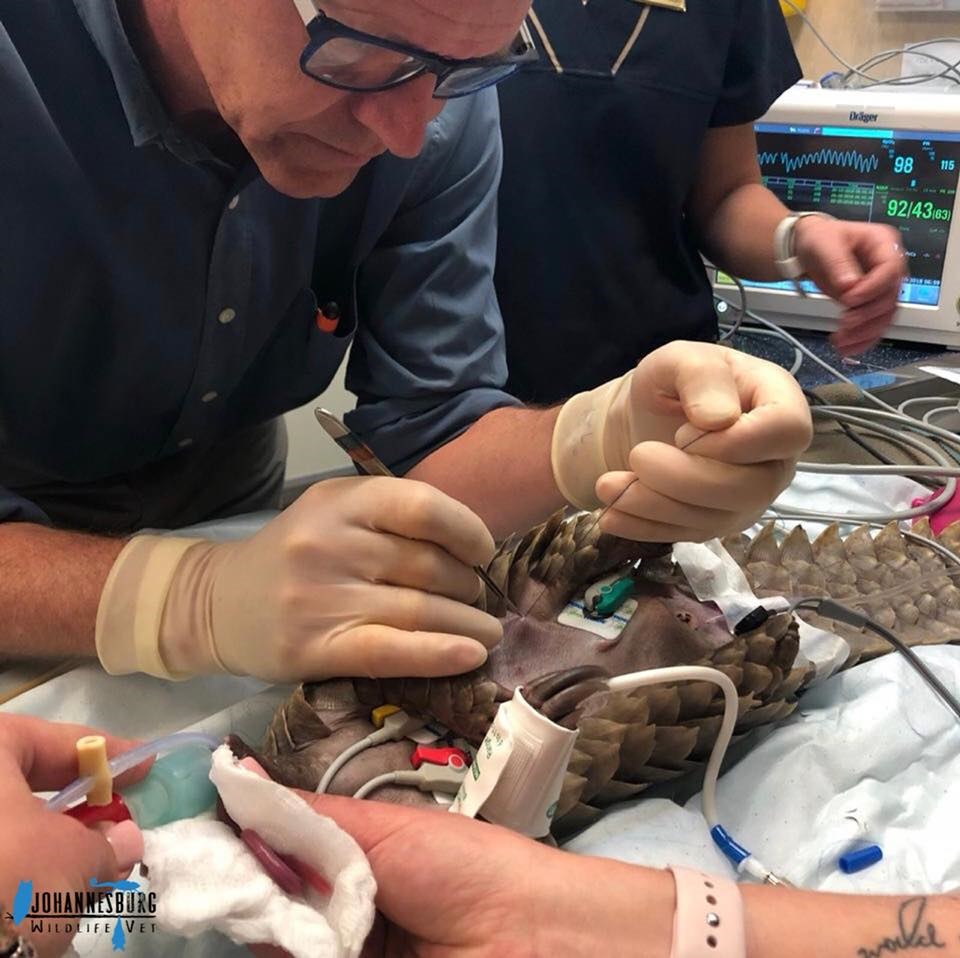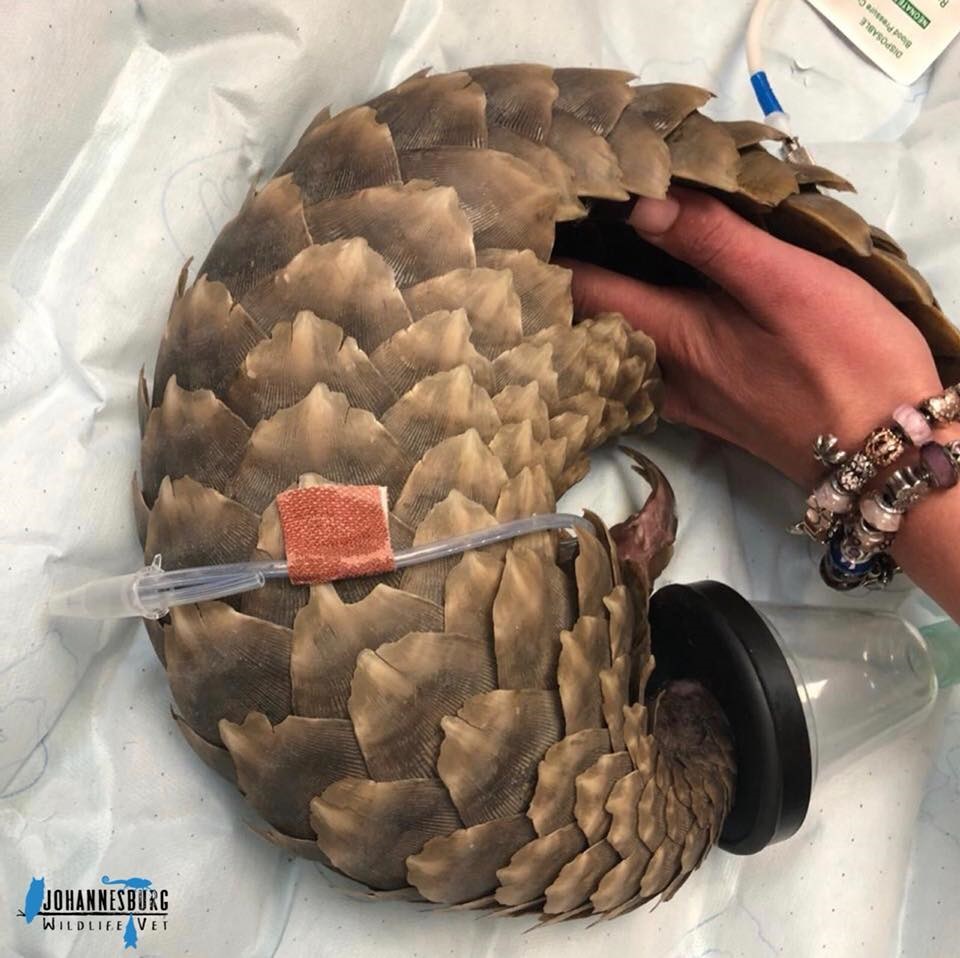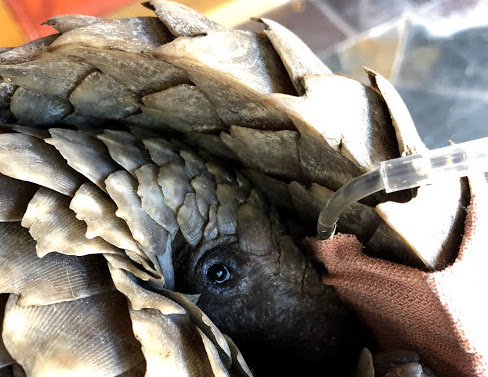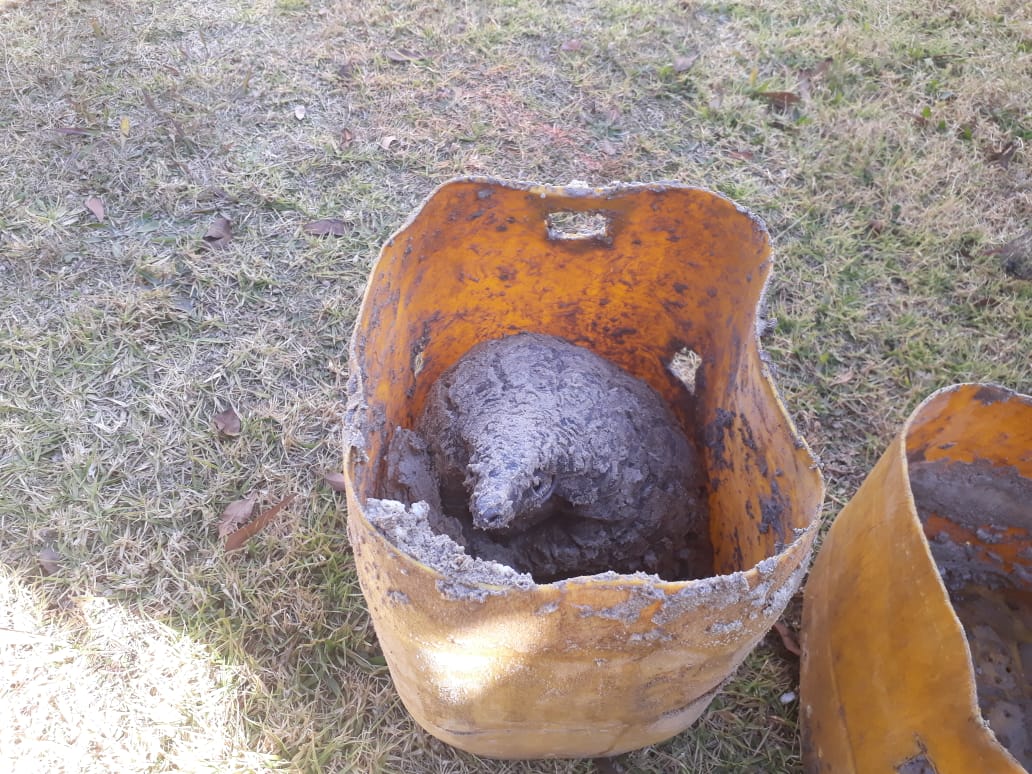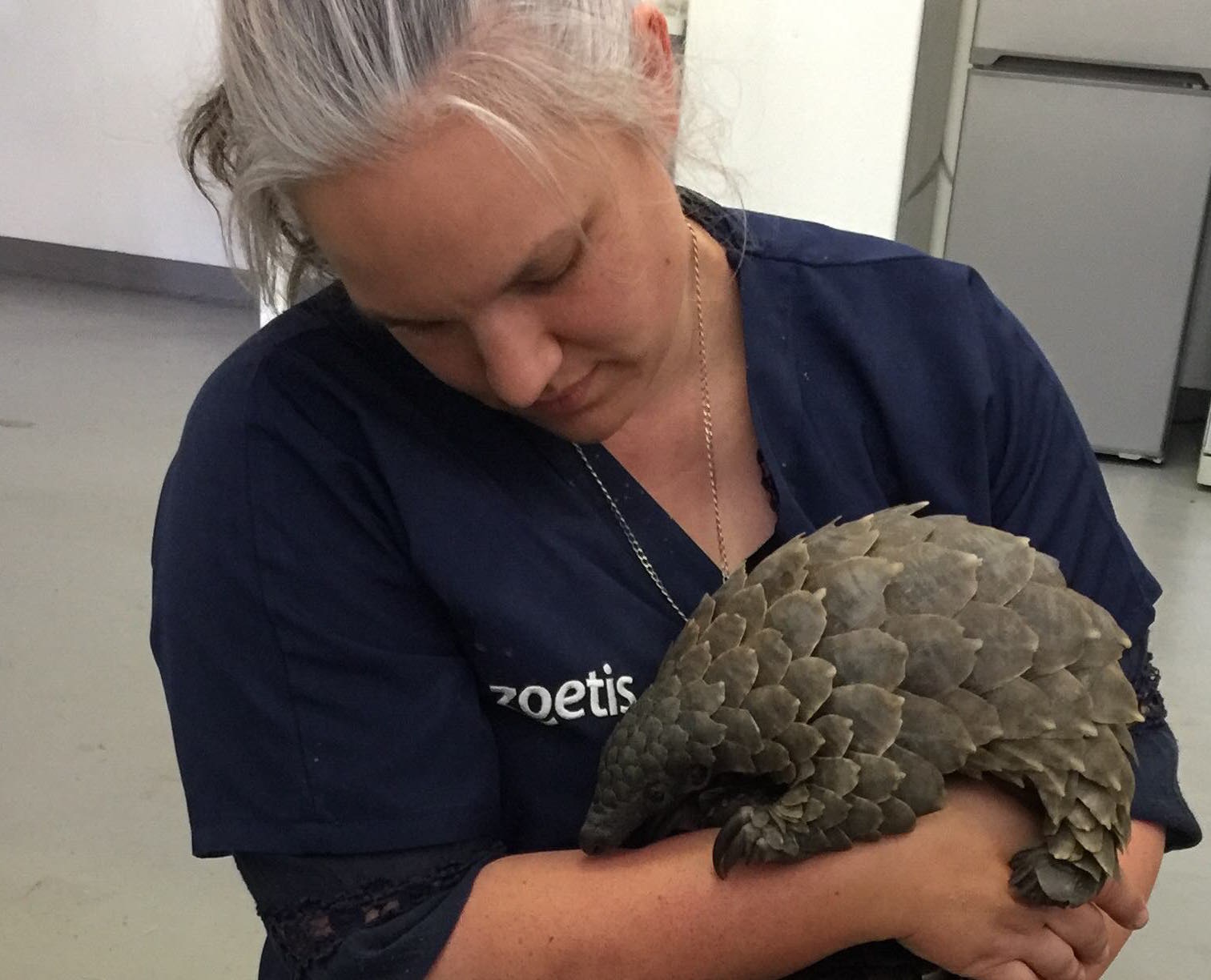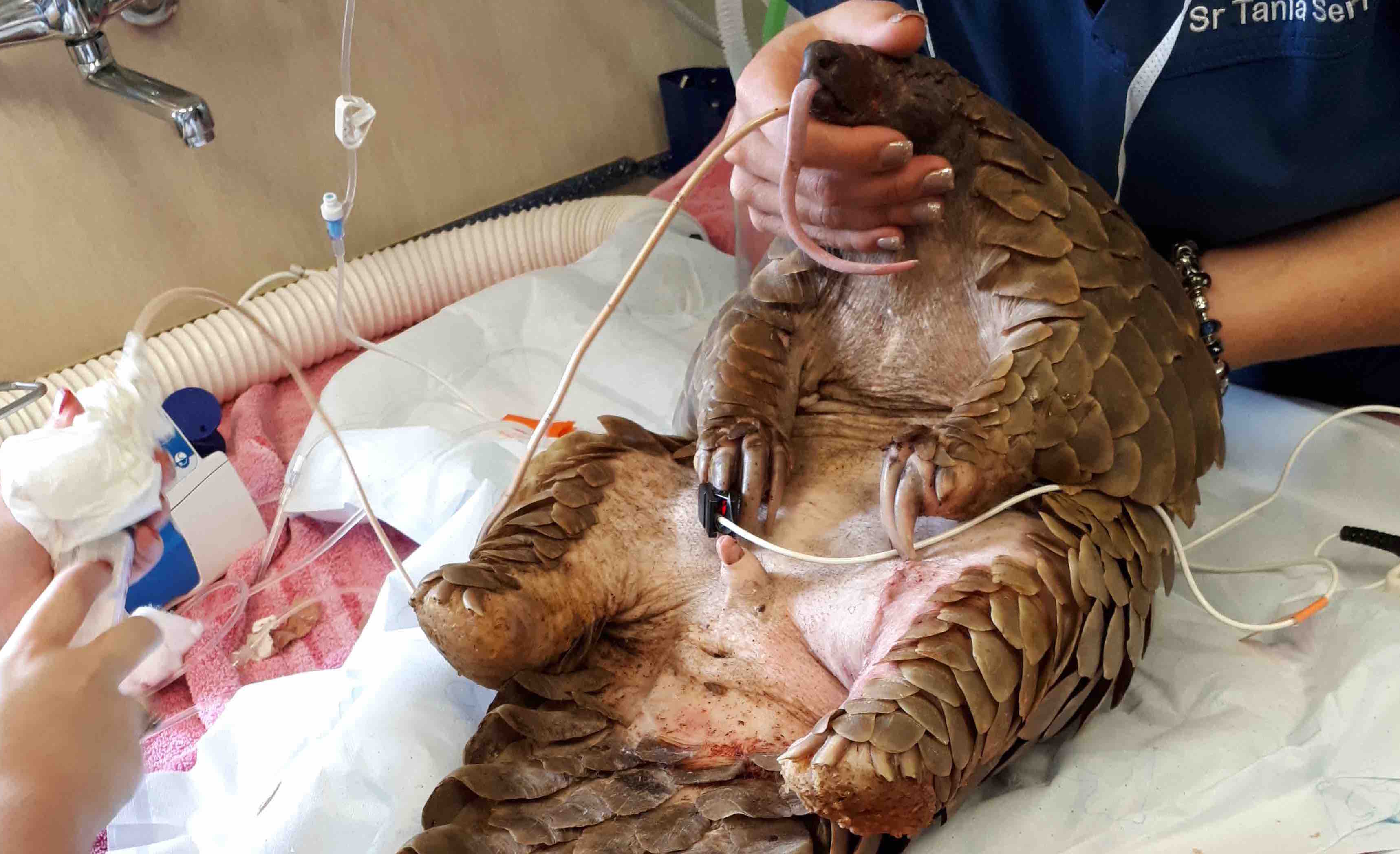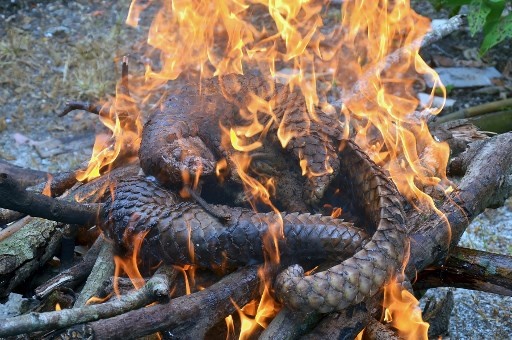When anti-poaching units save pangolins from captivity, it’s a rocky road to restore these singular creatures to health and to return them to the wild. By Harriet Nimmo
Pangolins are top of the sightings wish list for many visitors to national parks. This elusive African animal is legendary for its unique armour, impressively long tongue and the habit of curling into a ball when threatened.
Unfortunately the quirky-looking creature is gaining increasing notoriety for the saddest of reasons: pangolins are the world’s most trafficked mammal. They are poached for both traditional African medicines as well as for use in traditional Chinese medicine. But just like rhino horn, their scales are merely made of keratin – no different to human toenails.
South Africa is home to the little-known Temminck’s ground pangolin. Tragically more and more of these are now being confiscated by the police and anti-poaching units. When they are rescued from captivity, where they have been held illegally by poachers, these pangolins are in desperate need of care.
Rhino Revolution, based just outside the Kruger National Park, has formed an alliance with the African Pangolin Working Group to provide a rehabilitation service for pangolins rescued in the Lowveld. When pangolins arrive at the Hoedspruit centre, they are very stressed, badly malnourished and dehydrated.
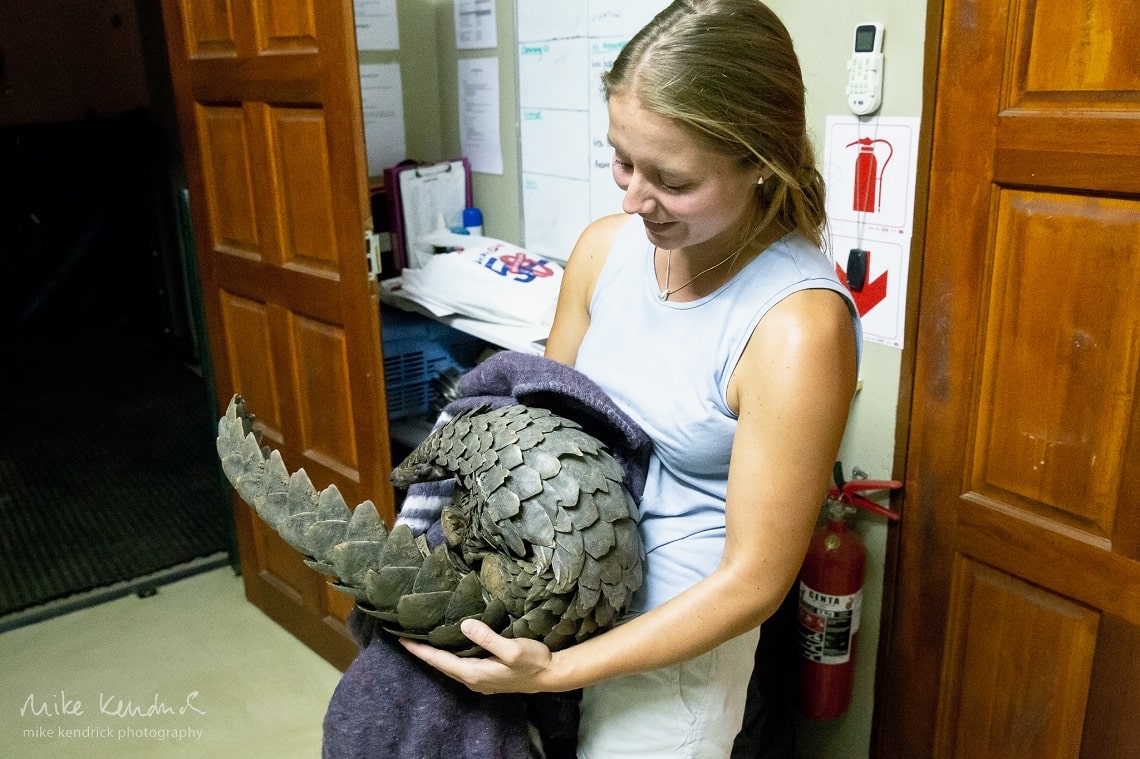
A veterinary nurse with a rescued pangolin. Pictures by Mike Kendrick

A rescued pangolin seen with a satellite tracking tag during its release back into the wild.
A rescued pangolin requires intensive medical care and support, which means Rhino Revolution’s veterinary nurses sit up around the clock. Using a feeding tube, the maltreated creature is carefully fed supplementary protein to try and improve its condition. In dire cases, these tube feeds are given every two hours.
At dusk, if well enough, the pangolin is ‘walked’ in the bush so that it can find its own food supply of ants and termites. This helps to encourage the natural way of feeding and improves dietary intake as soon as possible. I have been privileged enough to act as a pangolin walker and, trust me, walking a pangolin in the bush at night is quite a process. It was five hours of bumbling around in the dark while keeping an eye on my precious charge and hoping it would feed naturally.
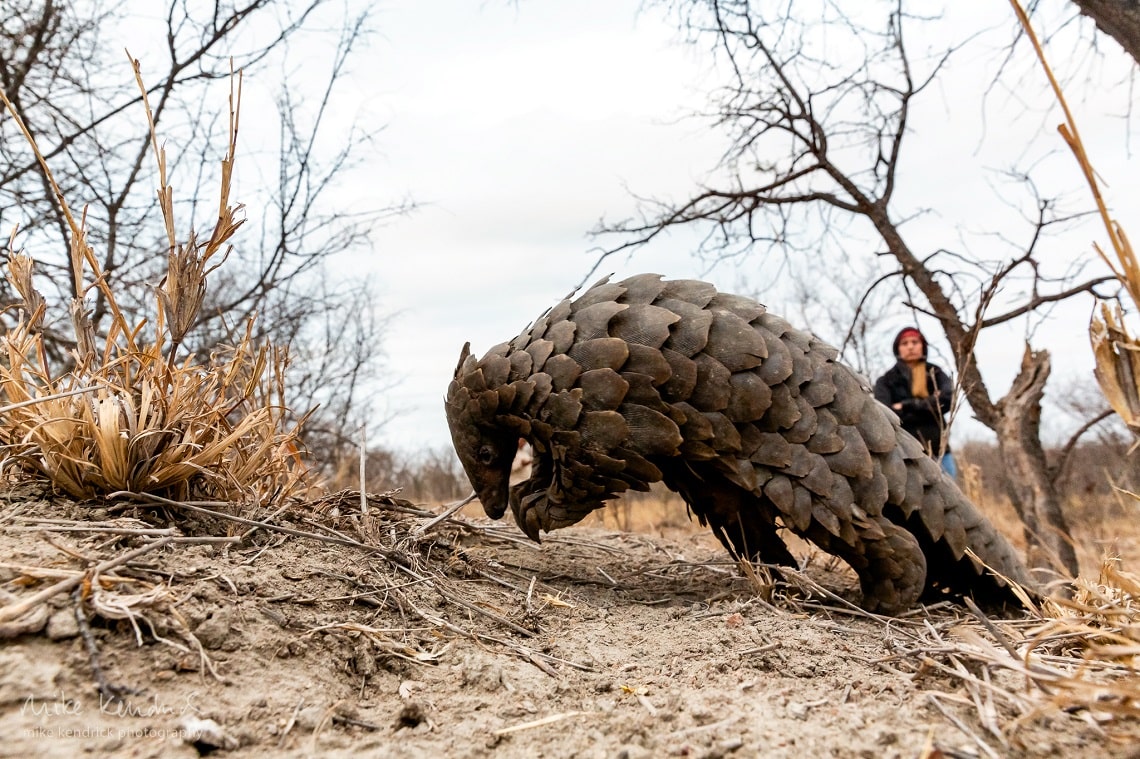
A pangolin is walked at dusk to enable natural foraging.
But the long hours become worth it when you see the difference it makes. Rhino Revolution has just released the first rescued pangolin back into the wild and it’s a proud moment for everyone involved.
Kunja was the second pangolin to arrive at the rehabilitation centre. Although terribly dehydrated he was a fully grown adult and more resilient. After a week in rehab, he has now been set free on a secure reserve, wearing a tracker device so his progress can be monitored remotely.
Rhino Revolution’s veterinary and husbandry costs are rapidly escalating. Just a few days ago, yet another pangolin arrived at the rehab centre. If you would like to help support the rescue of pangolins with a donation, please visit their website or contact info@rhinorevolution.org. (Rhino Revolution is a closed facility and does not have any vacancies for volunteers.)
Read more
Want to know more about this endangered animal? Read Wild’s pangolin Q&A with Professor Ray Jansen of the African Pangolin Working Group.





